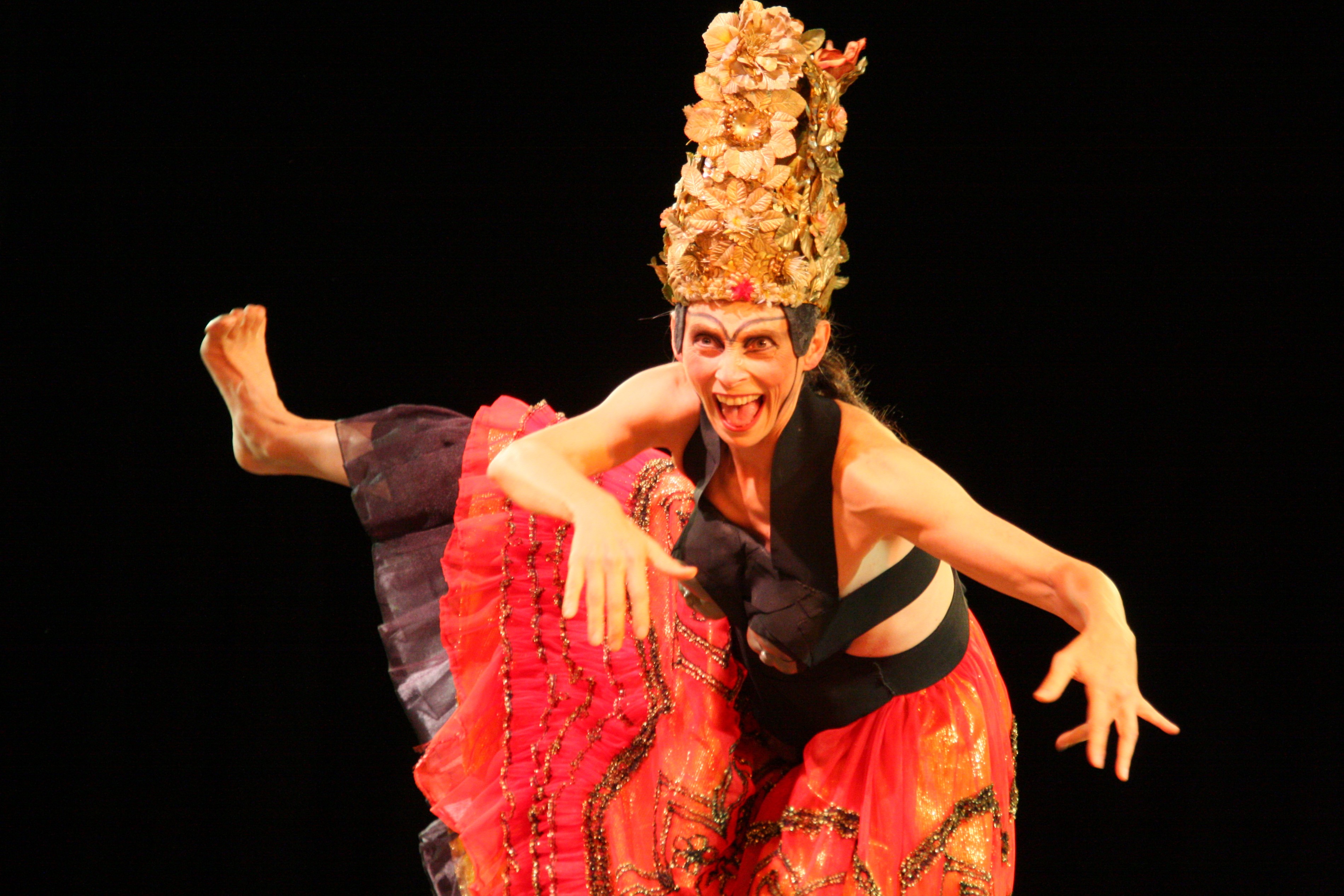1991
Frida Kahlo (1907-1954) was the main mediator of the relationship between native heritage and modern culture of her country, Mexico. The work of Kahlo shows her search for an authenticity related to the origin, nationality, nature, gender and the creation of a personal mythology. She translated her body experiences into self-portraits incorporating her dilemmas and obsessions and this way she kept the dialogue with her polymorphous cultural heritage and her own psycho-physical reality alive.
In search of the essential energy of Frida Kahlo the performance comes across her urge to suck all possible enjoyment out of life and her obsession with her own face: arms against silence and solitude, against the extreme pain of a devastated body and the veiled jealousy.
Frida Kahlo: a stonewoman gives birth to the night is not a biographical play, but a “corporal poem”. A tribute to the extraordinary Frida Kahlo de Rivera. An adventure and a dive into the strength and fragility of the feminine universe governed by the key energy words: imagination, nonconformity, independence, perseverance, focus and intensity.
A tribute to “human-frida-beings.”
Concept, direction and interpretation | Maura Baiocchi
Music | Arvo Pärt
Costume | Maura Baiocchi, Eurico Rocha, Carina Casuscellli
Stage set | Maura Baiocchi, Wolfgang Pannek
Lighting | Rodrigo Garcia
The work has been shown with great public and critical acclaim in Brazil, Germany and Argentina and was awarded with the Municipal Programm for Dance in São Paulo 2006.
Premiere | 21 May 1991 | Theatre TUCA Sao Paulo
1991 / Solo version
2001 / Duo version
2007 / Trio version

